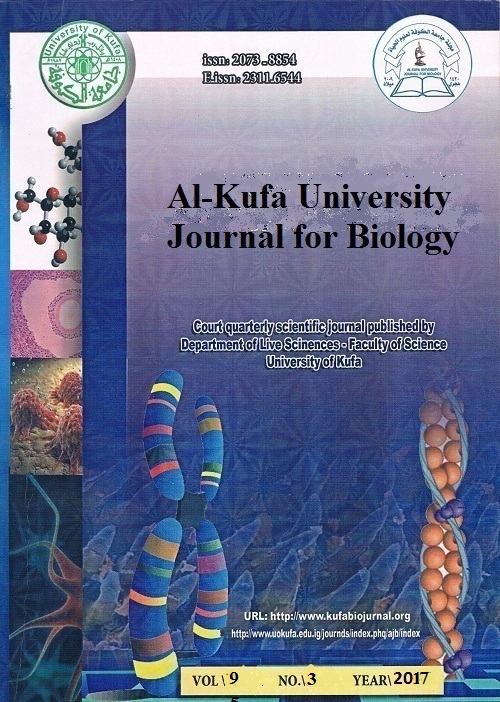Investigation of Adrenaline, Nor-Adrenaline and Complete Blood Count in Nursing Students with Stress at First Clinical Experience
DOI:
https://doi.org/10.36320/ajb/v9.i3.7914Keywords:
Stress, fungicide Bentazole, Clinical practice stress, Complete blood count reportAbstract
The first clinical experience for nursing students can be stressful. The students expressed feelings of irritability, distress and concern due to reasons such as not being ready for clinical experience, thinking they have inadequate clinical skills, unsupportive health professional staff and clinical learning environment, concerns over patient safety.
Objectives: To identify the level of adrenaline, nor adrenaline and complete blood count among the nursing students before and after their first clinical experiences; to identify the level of stress among the nursing students before and after their first clinical experiences and to determine association among stress, complete blood count, adrenaline and nor adrenaline hormonal level.
Materials and methods: A cross-sectional descriptive and quasi-experimental design was designed to investigate the adrenaline, non-adrenaline level, Complete Blood Counts, and their association with stress in nursing students before and after the first clinical experience by using Enzyme Linked Immuno-Sorbent Assay (ELISA) technique and utilizing self-report questionnaire. A non-probability sample (Convenience) of (71) students was taken in present study. The period of the study is from January / 2017 to March / 2017.
Results: The current study was determined that the majority of the age group at age category <=20 by about (84.5%). Regardless of gender, female was more than male (77.5% and 22.5%) respectively. The level of education was mostly at secondary school (97.2%). Additionally, urban was more than rural (78.9% and 21.1%) respectively and the studied group was mostly enough income (54.9%). For marital status, single more than married (94.4%).
Furthermore, the mean and standard deviation of blood tests and hormones level were different before and after the first clinical practice of the nursing students. The statistical results were significant for White blood cells (WBCs), and Hemoglobin (Hb), while highly significant for Lymphocytes (LYM), Mean corpuscular volume (MCV), Red blood cells (RBC), Mean corpuscular hemoglobin (MCH), Mean corpuscular hemoglobin concentration (MCHC), Platelets (PLT), Adrenaline and nor-adrenaline. The levels of all above blood test parameters were slightly decreased except adrenaline and nor adrenaline where increase, however these results were statistically significant. The stress was increased after first clinical practice by about (57.7%). However the statistical result was significant (P-value=0.03%).
Conclusion: The study concluded that the stress state in nursing students was affected by the first clinical experience and increase hormonal level (Adrenaline and nor-adrenaline) and decrease blood cell count when stress increased.
Downloads
References
Hae Young Woo (2015). Impact of Exposure to Verbal Abuse on Nursing Students’ Emotional Labor and Clinical Practice Stress During Clinical Training . International Journal of Bio-Science and Bio-Technology Vol.7, No.4, pp.255-264
EmelBahadırYılma. (2016) Academic and clinical stress, stress resources and ways of coping among Turkish first-year nursing students in their first clinical practice. journal of Giresun University, Faculty of Health Sciences, Department of Psychiatric Nursing, Giresun, KONTAKT 3 160–166
Sharma N, Kaur A (2011). Factors associated with stress among nursing students. Nursing and Midwifery ResearchJournal;7:12–21.
Sing C, Sharma S, Sharma RK (2011). Level of stress andcoping strategies used by nursing interns. Nursing and Midwifery Research Journal;7:152–60.
wi AS, Radi S, Youssri H. (2013) Stress/stressors as perceived by baccalaureate Saudi nursing students. Middle-East Journal of Scientific Research;14:193–202.
S. L.KimandJ. E.Lee, (2005) “Relationship among Stress Coping Strategies, and Self-esteem in Nursing Students Taking Clinical Experience”, The Journal of Korean academic society of nursing education,vol.11, no.1, pp.98-106.
Chattopadhyay A. (2011): textbook Explore Your Hidden Talents Over 40 self-analysis modules to help you bring out your hidden potential and excel in career, ,pp34.
Lechasseur K, Lazure G, Guilbert L (2011). Knowledge mobilized by a critical thinking process deployed by nursing students in practical care situations: a qualitative study. Journal AdvNurs.; 67(9): 1930-1940. PMid: 21466580 http://dx.doi.org/10.1111/j.1365-2648.2011.05637.x
Hellström-Hyson E, Mårtensson G, Kristofferzon ML. (2012) To take responsibility or to be an onlooker. Nursing students' experiences of two models of supervision. Nurse Education Today.; 32(1): 105-110. PMid: 21388721 http://dx.doi.org/10.1016/j.nedt.2011.02.005
Yildiz H, Akansel N. (2011) Beginning level nursing students' experiences with cancer patients in their first clinical placement: a qualitative appraisal in Turkey. Asian Pac Journal Cancer Prev.; 12(10): 2611-2615. PMid: 22320962
van Manen, M. (1997) Researching lived experience: human science for an action sensitive pedagogy. 2nd ed. Ontario: The Althouse Press; 199.
Meadows LM, Morse JM. (2001) Constructing evidence within the qualitative project. In Nature of Qualitative Evidence. JM Morse, JM Swansen, AJ Kuzel, ed. Thousand Oaks, CA: Sage, 187-200.
Yang WP, Chao CS, Lai WS, Chen CH, Shih YL, Chiu GL. (2012) Building a bridge for nursing education and clinical care in Taiwan - Using action research and Confucian tradition to close the gap. Nurse Education Today. [Epub ahead of print] PMid: 22480604 http://dx.doi.org/10.1016/j.nedt.2012.02.016
ers L, Weidner A, Zimmel CM. (2009) Successful transition of the new graduate nurse. Int J NursEducScholarsh.; 6(1): Article 34. Epub 2009 Oct 28. PMid: 19883374 http://dx.doi.org/10.2202/1548-923X.1802
ucker K, Wakefield A, Boggis C, Lawson M, Roberts T, Gooch J. (2003) Learning together: clinical skills teaching for medical and nursing students. Medical Education.; 37(7): 630-637. PMid: 12834421
Downloads
Published
How to Cite
Issue
Section
License
Copyright (c) 2017 Ali J. Eidan, Hassam M. Al-Amarei

This work is licensed under a Creative Commons Attribution 4.0 International License.
which allows users to copy, create extracts, abstracts, and new works from the Article, alter and revise the Article, and make commercial use of the Article (including reuse and/or resale of the Article by commercial entities), provided the user gives appropriate credit (with a link to the formal publication through the relevant DOI), provides a link to the license, indicates if changes were made and the licensor is not represented as endorsing the use made of the work.












